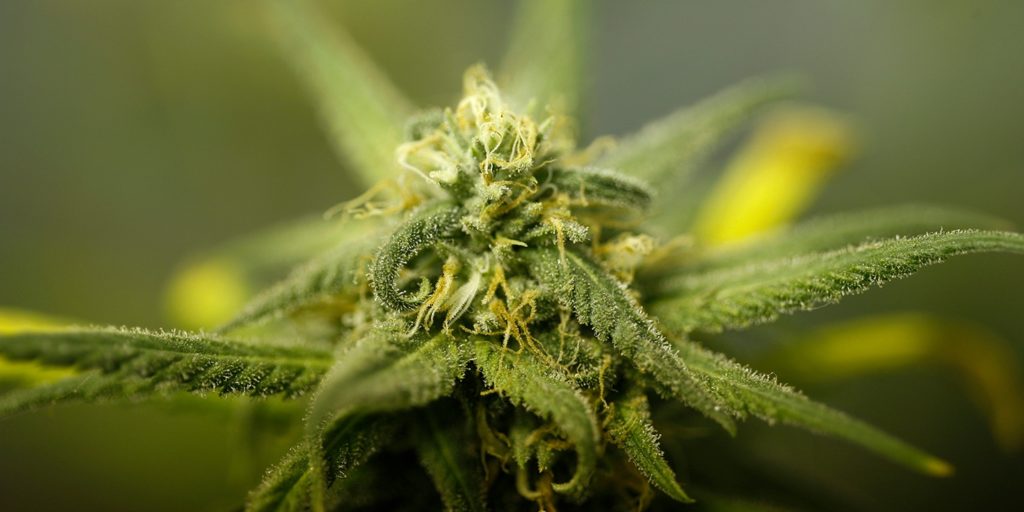Pharma Company Funding Anti-Pot Fight Worried about Losing Business, Filings Show
CAPITALISM, 19 Sep 2016
12 Sep 2016 – Pharmaceutical executives who recently made a major donation to an anti-marijuana legalization campaign claimed they were doing so out of concern for the safety of children — but their investor filings reveal that pot poses a direct threat to their plans to cash in on a synthetic cannabis product they have developed.
On August 31, Insys Therapeutics Inc. donated $500,000 to Arizonans for Responsible Drug Policy, becoming the single largest donor to the group leading the charge to defeat a ballot measure in Arizona to legalize marijuana.
The drug company, which currently markets a fast-acting version of the deadly painkiller fentanyl, assured local news reporters that they had the public interest in mind when making the hefty donation. A spokesperson told the Arizona Republic that Insys opposes the legalization measure, Prop. 205, “because it fails to protect the safety of Arizona’s citizens, and particularly its children.”
A Washington Post story on Friday noted the potential self-interest involved in Insys’s donation.
Investor filings examined by The Intercept confirm the obvious.
Insys is currently developing a product called the Dronabinol Oral Solution, a drug that uses a synthetic version of tetrahydrocannabinol (THC) to alleviate chemotherapy-caused nausea and vomiting. In an early filing related to the dronabinol drug, assessing market concerns and competition, Insys filed a disclosure statement with the Securities and Exchange Commission stating plainly that legal marijuana is a direct threat to their product line:
Legalization of marijuana or non-synthetic cannabinoids in the United States could significantly limit the commercial success of any dronabinol product candidate. … If marijuana or non-synthetic cannabinoids were legalized in the United States, the market for dronabinol product sales would likely be significantly reduced and our ability to generate revenue and our business prospects would be materially adversely affected.
Insys explains in the filing that dronabinol is “one of a limited number of FDA-approved synthetic cannabinoids in the United States” and “therefore in the United States, dronabinol products do not have to compete with natural cannabis or non-synthetic cannabinoids.”
The company concedes that scientific literature has argued the benefits of marijuana over synthetic dronabinol, and that support for marijuana legalization is growing. In the company’s latest 10-K filing with the SEC, in a section outlining competitive threats, Insys warns that several states “have already enacted laws legalizing medicinal and recreational marijuana.”
Subsys, the fentanyl spray Insys makes, is used as a fast-acting pain reliever. Fenatyl is an opioid that has made headlines in recent years as the number of Americans overdosing on the drug has skyrocketed. Fenatyl is 50 times stronger than heroin and has been linked to the death of Prince earlier this year. Last month, two Insys executives pled guilty to a pay-for-play scheme to use speakers fees as a way to get doctors to prescribe Subsys.
Marijuana advocates claim that legalized pot has a variety of medical uses, including pain relief.
It’s not the first time pharmaceutical companies have helped bankroll the opposition to marijuana reform. The Community Anti-Drug Coalition of America, a nonprofit that organizes anti-marijuana activism across the country, has long received corporate sponsorship from Purdue Pharma, the makers of Oxycontin, and Janssen Pharmaceuticals, another opioid manufacturer.
J.P. Holyoak, chairman of the Campaign to Regulate Marijuana Like Alcohol, a group supporting the legalization ballot measure, released a statement condemning the Insys donation. “Our opponents have made a conscious decision to associate with this company,” Holyoak said. “They are now funding their campaign with profits from the sale of opioids — and maybe even the improper sale of opioids.”
_______________________________
Lee Fang – ✉lee.fang@theintercept.com
Go to Original – theintercept.com
DISCLAIMER: The statements, views and opinions expressed in pieces republished here are solely those of the authors and do not necessarily represent those of TMS. In accordance with title 17 U.S.C. section 107, this material is distributed without profit to those who have expressed a prior interest in receiving the included information for research and educational purposes. TMS has no affiliation whatsoever with the originator of this article nor is TMS endorsed or sponsored by the originator. “GO TO ORIGINAL” links are provided as a convenience to our readers and allow for verification of authenticity. However, as originating pages are often updated by their originating host sites, the versions posted may not match the versions our readers view when clicking the “GO TO ORIGINAL” links. This site contains copyrighted material the use of which has not always been specifically authorized by the copyright owner. We are making such material available in our efforts to advance understanding of environmental, political, human rights, economic, democracy, scientific, and social justice issues, etc. We believe this constitutes a ‘fair use’ of any such copyrighted material as provided for in section 107 of the US Copyright Law. In accordance with Title 17 U.S.C. Section 107, the material on this site is distributed without profit to those who have expressed a prior interest in receiving the included information for research and educational purposes. For more information go to: http://www.law.cornell.edu/uscode/17/107.shtml. If you wish to use copyrighted material from this site for purposes of your own that go beyond ‘fair use’, you must obtain permission from the copyright owner.
